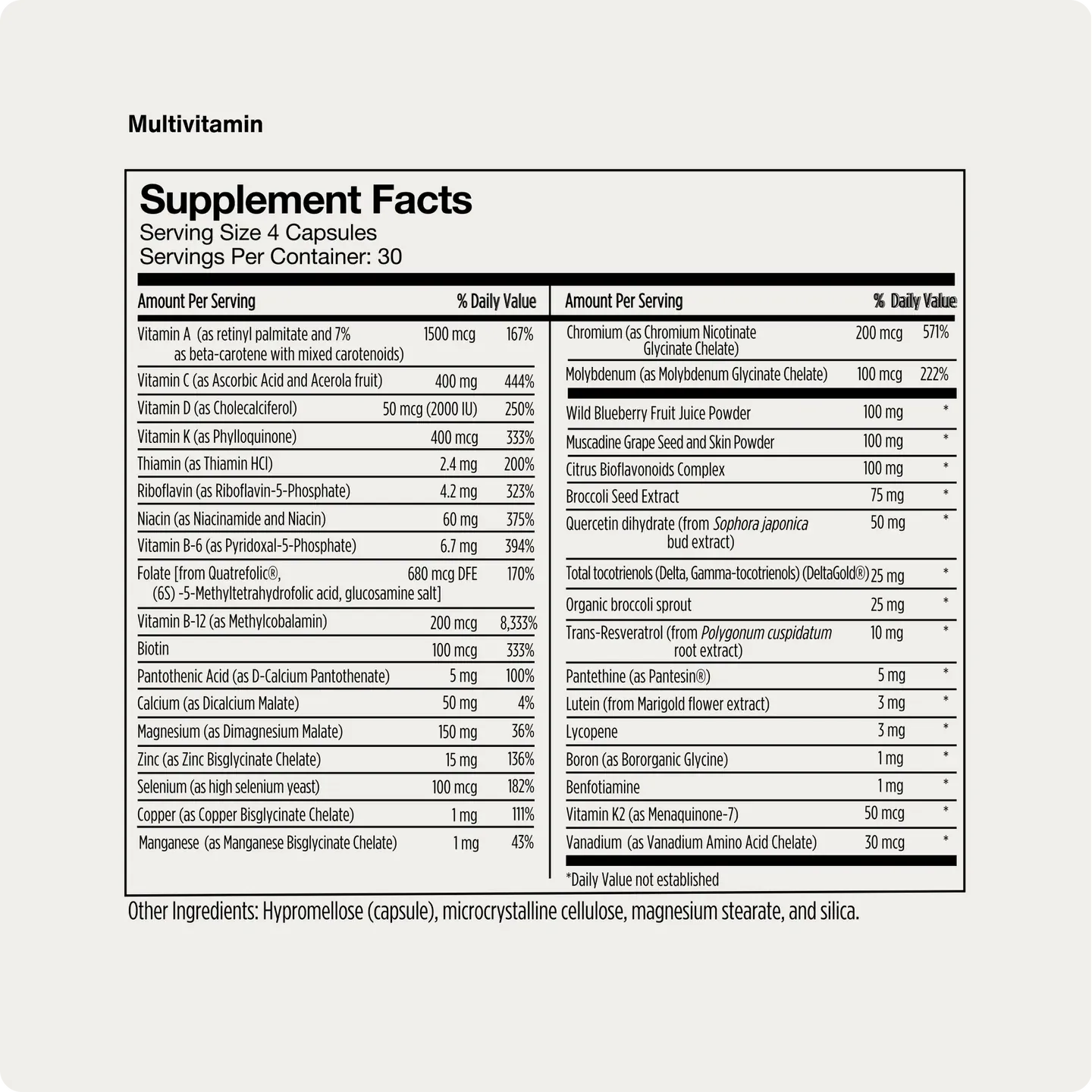Which Supplements Should You be Taking?
We're constantly bombarded by messages to buy expensive supplements, but do you really need them? Read on to find out!

We’re constantly bombarded by ads, posts, articles, and lists on all the supplements available and how they will improve your health, looks, and longevity. Supplements are big business: the current market is $50 billion in the US alone. Many social media influencers use their channels to push supplements and other products to improve health, performance, mood, and more. But do you really need to be taking expensive supplements? And what about safety?
Supplements Aren’t Regulated like Medications
According to the FDA, supplements are, “a…group of products intended to supplement the diet that are not better described as drugs, foods, or food additives.” For this article, I’m focusing on dietary supplements, which includes pills, tablets, capsules, gummies, softgels, liquids, and powders.
The key takeaway here is that supplements are not medicine and are not regulated the same way. Here is what the FDA says about supplement regulation (emphasis mine):
Manufacturers and distributors of dietary supplements and dietary ingredients are prohibited from marketing products that are adulterated or misbranded. That means that these firms are responsible for evaluating the safety and labeling of their products before marketing to ensure that they meet all the requirements of the Federal Food, Drug, and Cosmetic Act as amended by DSHEA and FDA regulations.
In other words, it’s up to the manufacturer to ensure that their products are clean, safe, and compliant. The FDA doesn’t test or evaluate supplements for safety or purity (in contrast, the EU regulates supplements as food). We’ll revisit this later in the article.
Which Supplements Should I be Taking?
The truth is that if you’re eating a relatively well-rounded diet, you probably don’t need much in the way of supplementation. However, there are a few supplements that can be helpful, especially for athletes.
Daily Multivitamin
For most people, taking a high-quality daily multivitamin helps fill any micronutrient gaps in your diet. But be sure to read the label and be wary of doses. I often see vitamins that list absolutely insane amounts of B vitamins. At best, this is a waste of money because you’ll simply pass them when you go pee. So yes, you’re literally peeing your money away on that 20,000% RDA dose.
But some B vitamins – particularly B3 (niacin) – can be harmful in high doses.
You should also be mindful of the fat-soluble vitamins – A, D, E, and K. Your body stores those in body fat, so they stick around in the body instead of being quickly excreted like B, C, and other water-soluble vitamins. I often see people recommending high doses of vitamin D for all sorts of conditions, but the upper safe limit of most adults is 4,000 IU (100 mcg) per day. In other words, taking a 20,000 IU vitamin D dose may not be a very good idea. You should talk with your doctor if you think you have a vitamin D deficiency.
By choosing a vitamin that’s dosed in multiple pills you can better control your intake. For example, a full dose of my daily vitamin is four capsules, but I take only one. That way, I can fill any gaps in my micronutrient intake without overdoing it.

Protein
Protein supplementation is also a good option, especially for athletes or people trying to build muscle or lose fat. The standard recommendation is 0.8-1.2 grams per kilogram of body weight, which means that a 180-pound (81.6 kg) person should consume about 65-98 grams of protein per day.
But research indicates that most people can consume much more than that without issues. In fact, studies have found significant benefits with daily doses of 1.6-2.4 g/kg.
Vegetarians and vegans can benefit from consuming extra protein, since the body processes non-animal forms of protein like those found in legumes differently.
In any case, a high-quality protein supplement in the form of powder or shakes can be a good addition for many people.

Creatine Monohydrate
Creatine monohydrate is one of the longest and most widely studied supplements. When used in conjunction with resistance training creatine can help people who want to build muscle or gain lean mass. However, creatine may contribute to some water retention in muscle tissue, as well as helping build muscle. So if weight loss is your goal then creatine may not be the best option.
Most creatine users take 5mg per day, though short-term “loading” phases may go as high as 20mg per day for a week.
Note also that there are other forms of creatine that have not been widely studied, so it’s best to stick to creatine monohydrate if you decide to give it a try.
Iron (vegetarians/vegans)
Like protein, plant-based forms of iron are less bioavailable than those from animals, so vegetarians and vegans may benefit from an iron supplement. However, iron can be dangerous in high doses, so it's important to not overdo it. It’s best to have your doctor check your iron level before taking a supplement.
Schedule a nutrition consultation to get personalized insight and advice on your diet and supplement needs.
Omega-3 and -6 (vegetarians/vegans)
Vegetarians and vegans may also benefit from taking an omega supplement. Fatty fish like salmon are the best source of omegas. For vegetarians and vegans, omega 3 fatty acids are widely available in flaxseeds, chia seeds, canola oil, black walnuts and tofu. Cooking oils including safflower and sesame oil, as well as pine nuts and sunflower seeds are good sources of omega-6. However, those may not be enough to meet dietary needs, so a high-quality omega supplement may be helpful for some people.
Don’t Overdo the Doses
As the old saying goes, “the dose makes the poison,” and that is certainly true for vitamins and minerals. I discussed this above, but it’s worth saying again that some vitamins and minerals can be dangerous at higher doses. If you’re unsure, a nutrition coach, dietitian, or your healthcare provider can provide additional information.
How Do I Know if a Supplement is Safe?
I noted earlier that in the United States, safety and purity are largely in the hands of supplement manufacturers, who have incentives to cut costs or increase production. Testing has found that many supplements are contaminated with bacteria and fungus, heavy metals, and steroids or drugs. This can be especially risky for athletes who are subject to WADA rules. No one wants to get hit with a surprise positive because of a contaminated supplement.
The best way to help ensure supplement purity and safety is to look for reliable third-party certifications. Two of the best known are Informed Sport and NSF Certified for Sport. Both offer rigorous certification processes that help ensure supplements are safe and free of contaminants. I rarely use any supplement that isn’t certified by one or the other.
Summary
With the proliferation of health and fitness content, it can be overwhelming to navigate the supplement options available. For most people, a well-rounded diet eliminates the need for extensive supplementation. That being said, certain supplements can be beneficial, particularly for athletes or individuals with specific dietary needs.
It's essential to approach supplementation with care, as the industry is largely self-regulated and taking large doses of certain vitamins and minerals can be harmful. To ensure safety, look for third-party certifications like Informed Sport and NSF Certified for Sport, and consult with a healthcare professional or nutrition coach to determine what’s best for you. Ultimately, a balanced diet and informed supplementation choices can help optimize health and wellness, while minimizing potential risks.
Schedule a nutrition consultation to get personalized insight and advice on your diet and supplement needs.





